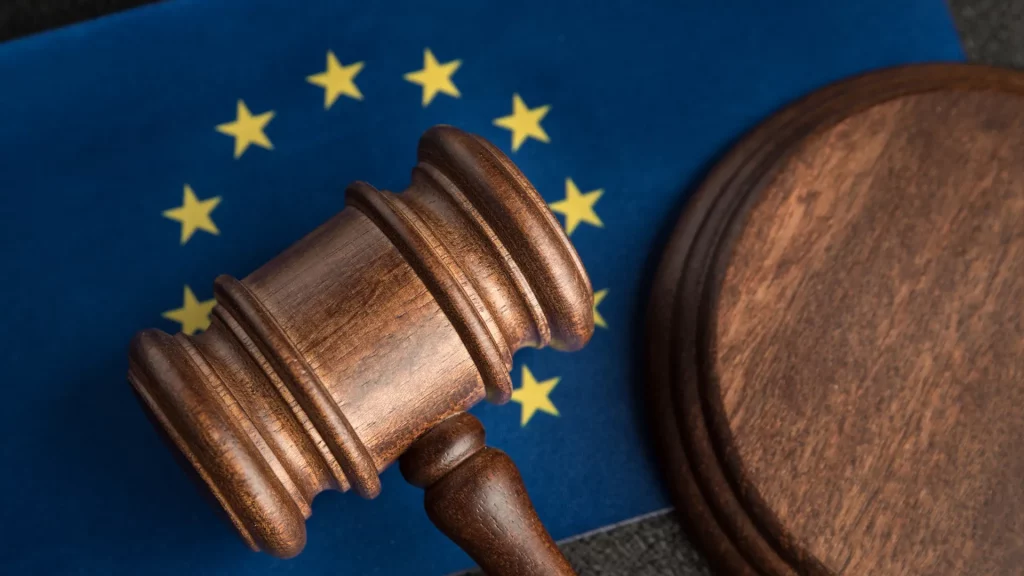The unusual restraints from the EU apply to all online platforms covering Alphabet (Google), Amazon, Apple, Meta, Microsoft, Snapchat, Tik Tok and many more.
The European Union has surprised the Silicon Valley giants with a new European law. The world’s largest tech companies will now have to adhere to a new set of rules starting from this Friday. These rules cover everything ranging from data management, social media campaigns, targeted advertising and duplicity in e-commerce products.
The unusual restraints from the EU apply to all online platforms covering Alphabet (Google), Amazon, Apple, Meta, Microsoft, Snapchat, Tik Tok and many more. This is one of the most extensive and strenuous efforts undertaken by regulation authorities to curtail tech companies under the umbrella of legislation. This might require software changes for customer security and could also lead to fines in some cases.
In recent years, activists and critics have raised concerns over several serious issues regarding the operations of such large tech firms. These giants have been accused of disinformation and misinformation, harmful effects on the mental health of the youth, swamping of algorithmically recommended content with a lack of transparency, and advertising of counterfeit or illegal products on online selling platforms.
It should not be considered a complete surprise as the EU had already passed the European Union’s Digital Services Act (DSA) last year. These companies had enough time to make appropriate adjustments. The upcoming Friday is the ultimate deadline, at least for now, to amend as per the rules. After that, the tech companies with a 45 million EU customer base will have to face the charges laid down in the law.
Last year, DSA prohibited all online platforms from data-focused advertising to children. They also banned such targeted ads to all internet users based on their political inclination, sexual orientation and racial ethnicity. They restrict all kinds of ads, irrespective of their genre, be it political, commercial or concern advertising.
Activists unearthed “dark patterns” used by these large firms. These are minuscule loopholes, subtly crafted to lure and push consumers towards giving their personal information and unconsciously making decisions that the company intends them to take for self-interests. A fishy example of such a tactic is a pattern recognised by keen observing consumer groups that companies try to attract users to opt into tracking by highlighting an acceptance button with bright colours, simultaneously minimising the font size and using dull colours for the option of an opt-out button.
The law demands something from a consumer protection perspective that will be a nightmare for the companies. The law asks for the consumer’s ability to report illegal content and products and to alter content moderation algorithms. This will require the companies to disclose their terms of service in a readable manner.
The law is even more stringent for large corporations. Companies are categorised based on their sizes, those that fall under the Very Large Online Platforms or Very Large Search Engines are required to undergo independent risk assessments focused on specific things like how can a public figure or an entertainer exploit the platform or manoeuvre public opinions during elections or violate human rights. Companies will have to work to minimise such risks and also build-cache folders of ads they have run and permit the public to review them.
A list was compiled this April that had only a few companies, but that included all the large, powerful ones in the world, and for them, violations of government obligations can be an expensive affair. The DSA has ordered EU officials to levy fines of up to 6% of the company’s total global annual revenue. This can bring billions in fines for large tech firms like Meta, which reported an annual revenue of $116 billion.
Amendments being done
Companies have been working for months to comply with the rules and dodge any sort of consequences arising due to missing the deadline. Nick Clegg, Global Affairs President at Meta, said in a statement that they support the ambitions of DSA and the establishment of a regulatory regime in Europe to curb ill effects on the users. He mentioned the induction of limits on what data advertisers can show users aged between 13-17 on Facebook and Instagram.
A Microsoft spokesperson stated that DSA’s measures can be a huge crackdown on the illegal content available online. They are aware of their responsibilities as a major tech firm operating in the EU and will continue to work in tandem with the European Commission on meeting the obligations of the needs of DSA. Even the Chief Digital Officer of Microsoft, Courtney Gregoire, explained how the company is improving the safety features of their search engine Bing.
Snap, the parent company of Snapchat, told media outlets that they are working tirelessly with the European Commission to comply with the new law. They have also allotted several workers to monitor and ensure compliance with all the obligations.
Apple announced in a statement that the DSA’s aims align with that of Apple’s goals to protect consumers from illegal and harmful content. They are working towards combining the requirements of DSA into their user privacy norms and security.
Amazon has come up to challenge the DSA in court. It argues that the regulations apply to ad-based online speech platforms, and Amazon happens to be a retail platform, and even its competitors in the EU have also not been labelled as the same despite being bigger than Amazon in the EU.
